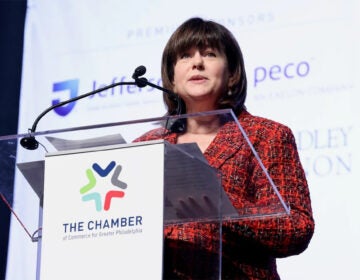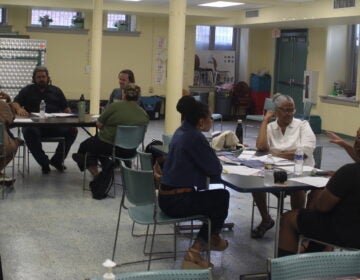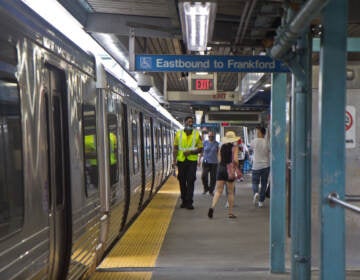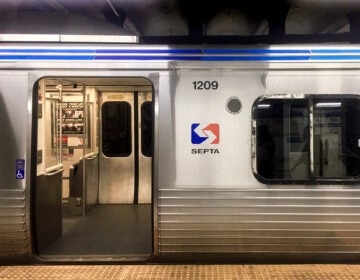SEPTA workers vote to authorize strike, union contract set to expire Nov. 7
The vote does not mean workers plan to immediately walk off the job but gives union leaders the authority to call a strike if contract negotiations do not progress.
Listen 1:12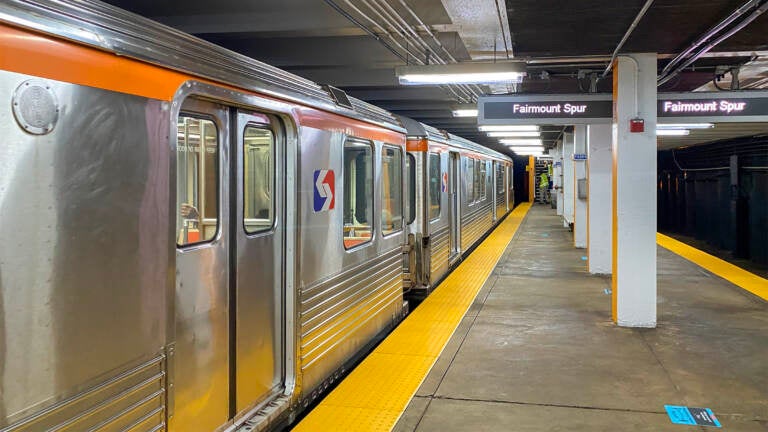
Fairmount Station is one of 11 Broad Street Line stops where upgrades are planned. (Danya Henninger/Billy Penn)
From Philly and the Pa. suburbs to South Jersey and Delaware, what would you like WHYY News to cover? Let us know!
SEPTA’s largest union authorized a strike Sunday for the second straight year, highlighting concerns over transit safety and lack of progress on salary negotiations.
Transportation Workers Union Local 234, which represents bus, subway and trolley operators, and other support staff took the vote less than two weeks before their contract with SEPTA expires Nov. 7.
The vote does not mean workers plan to immediately walk off the job but gives union leaders the authority to call a strike if negotiations do not progress.
In a bulletin on its website posted Wednesday, the union said “SEPTA wants to give us a 0% raise” and SEPTA “will not commit to providing its employees with a safe working environment because it is too expensive.”
“For over a decade, the Union has been sounding the alarm to SEPTA about the problems with its radio communication systems — bus radios going into fallback mode, the dead zones underground, etc. — that leave employees facing potentially life-threatening incidents with no way to let SEPTA know,” the union wrote.
Previous bulletin posts highlighted the union’s concerns with safety, specifically a shooting that left three women injured on a Route G bus earlier this month and another one on a Route 60 bus.
“We are committed to engaging in good-faith negotiations,” a SEPTA spokesperson said in an email to WHYY News. “With the goal of reaching an agreement that is fair to our hard-working employees and to the customers and taxpayers who fund SEPTA.”
“A major factor in these negotiations is SEPTA’s ongoing funding crisis. With the exhaustion of federal COVID relief funds earlier this year and ridership still recovering from the pandemic, SEPTA is facing an operating budget deficit of nearly a quarter billion dollars annually,” the statement continued. “We continue to work with Governor Shapiro and legislative leaders on sustainable, long-term funding, but at this point, there is no solution in sight. This stark reality impacts these negotiations, as well as SEPTA’s ability to provide critical transportation services throughout the Philadelphia region.”
Representing more than 5,000 employees, a strike would halt operations of city bus and trolley routes, along with the Market-Frankford Line and Broad Street Line. Regional Rail, Suburban Transit, LUCY and CCT Connect service would continue to operate as usual.
Last year, the union reached a deal with SEPTA to avoid a strike just a day after a bus driver was killed on the job. In 2016, TWU Local 234 went on strike after not being able to reach an agreement with SEPTA on a new contract. In 2009, a similar SEPTA strike lasted for six days.
SEPTA’s transit police officers nearly walked off the job last December before reaching an agreement days after authorizing a strike. SEPTA police last went on strike in 2019, and before that in 2012. Regional Rail unions also authorized a strike last year but reached a deal with SEPTA in June, according to the Philadelphia Inquirer.
SEPTA CEO Leslie Richards announced Thursday she will step down from her position Nov. 29. Board Chairman Kenneth Lawrence said a nationwide search for Richards’ successor is expected to occur in the coming weeks.
Earlier this year, SEPTA announced budget cuts, a spending freeze and a possible fare hike to help manage its anticipated fiscal issue amid its budget woes. SEPTA faces a $240 million annual deficit as funding from federal COVID-19 relief runs out.
Local business leaders have been pushing to help restore funding to SEPTA, saying Philadelphia “would gridlock” and “traffic would be a nightmare.”
WHYY News has reached out to TWU Local 234 for additional comment.
WHYY is your source for fact-based, in-depth journalism and information. As a nonprofit organization, we rely on financial support from readers like you. Please give today.



